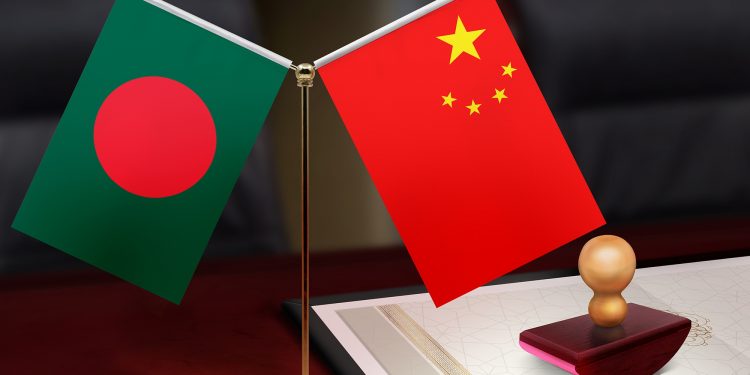Of all the problems that India faces in its neighbourhood, the most pressing one seems to be emerging from Bangladesh which is going all out to woo China in its blatant disregard for India’s strategic concerns. During his recent trip to China, Muhammad Yunus, the Chief Adviser of Bangladesh’s interim government, stirred a controversy by claiming that Bangladesh is the “only guardian” of the Indian Ocean, as the seven Northeastern states of India are “landlocked.” In a viral video, Yunus proposed that China consider establishing a base in Bangladesh, a move that is seen as a challenge to India’s strategic interests. Not only that, during his talks with Chinese President Xi Jinping, Yunus obtained Chinese support for the modernization of Bangladesh’s Mongla Port, a project valued at $400 million. Furthermore, China committed $350 million to expand the China Economic and Industrial Zone in Chittagong, along with an additional $150 million designated for technical assistance. Another key topic of discussion between the leaders was the Teesta River, which is jointly shared by Bangladesh and India. A memorandum of understanding has been requested for Chinese support in the Teesta Barrage project.
Dhaka’s embracing China raises serious red flags for India, especially over the security of the strategically important Siliguri Corridor, also known as the ‘Chicken’s Neck.’ It is a narrow land corridor in West Bengal that links the Northeastern states of India to the rest of the country. Its geopolitical, strategic, and economic importance makes it a crucial asset for India. Northeast India’s relative economic backwardness and other historical factors have contributed to unrest in many of the states in the past that are seemingly still being neglected. At present, the state of Manipur has been ripped apart by ethnic violence with no end to the crisis in sight. Additionally, the region’s extensive and porous borders with China, Bangladesh, Myanmar, and Bhutan make it vulnerable to external influences and cross-border infiltration.
Apart from China, the new government in Bangladesh has taken several measures to improve the country’s ties with Pakistan. The ties are swiftly advancing in diplomatic and economic areas. Bangladesh has relaxed visa restrictions, trade has increased significantly, direct flights have resumed, and military cooperation between the two countries is also on the horizon.
Also Read: Agentic AI
While ousted Bangladesh Prime Minister Sheikh Hasina’s government was close to India and sought cooperation from New Delhi in almost all sectors, Yunus’ administration seems to be pivoting its focus towards Beijing and Islamabad. For almost twenty years, India’s policy towards Bangladesh has been shaped by the leadership of Hasina. However, India’s foreign policy establishment has failed to gauge the mood of Bangladesh’s people who revolted last year against Hasina’s secular, yet autocratic rule. The popular uprising ultimately led to Hasina’s ouster and brought radical Islamists to power in that country. The transition was marked by widespread violence, especially against the country’s Hindoo and other minorities. In addition, India’s decision to shelter Hasina and its lack of response to Bangladesh’s formal request for her extradition to face charges related to alleged crimes against humanity remain a contentious issue between the two countries.
Seen in the context of Dhaka’s overtures towards China and Pakistan, Yunus’ remarks in Beijing were neither accidental nor impulsive. They should be understood within the framework of the strengthening ties between Dhaka, Islamabad, and Beijing. India needs to be cautious of all these developments, as it already runs all the risks of getting encircled by enemies from all sides. Diplomacy is an intricate exercise and has little room for rhetoric and chest thumping. The sooner India’s foreign affairs apparatus understands this, the better. However, present indications do not point towards a more pragmatic approach by India towards these dark clouds.






































